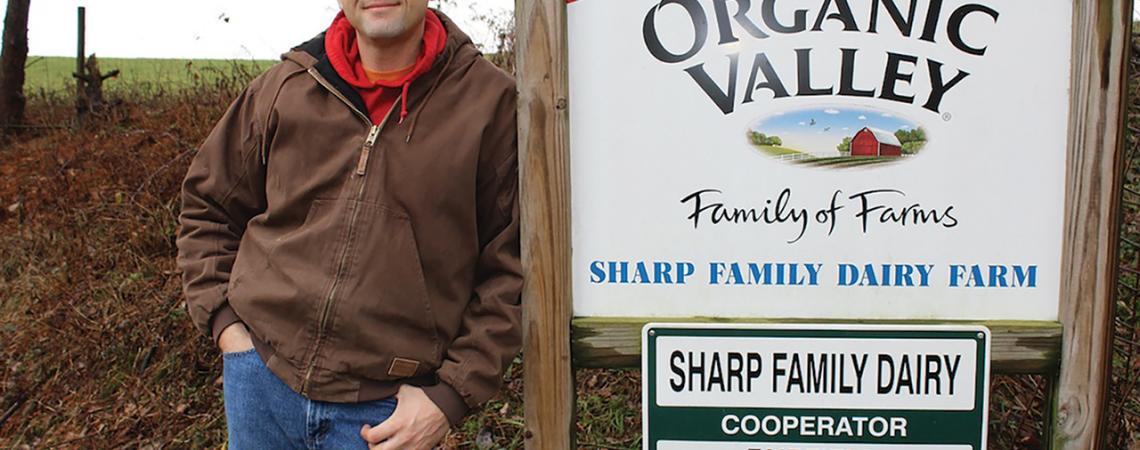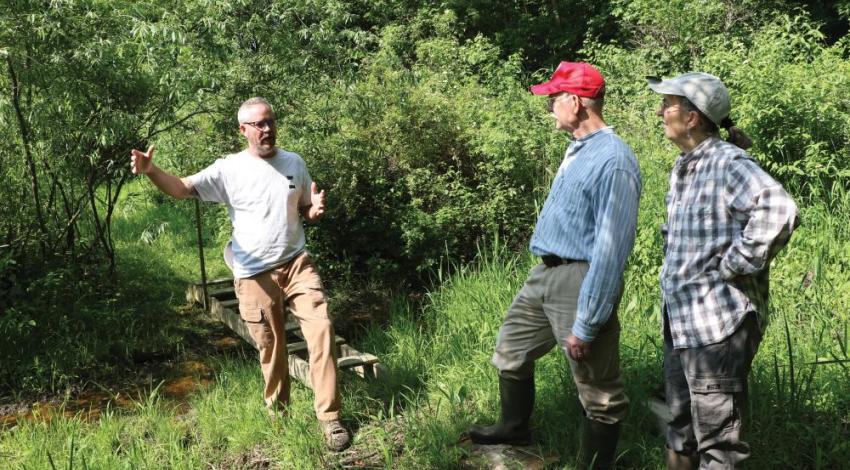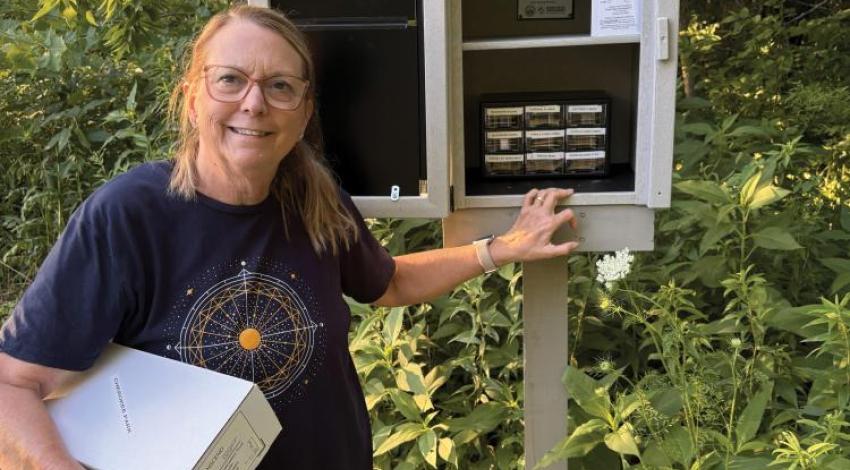Transitioning to organic production has proved beneficial for Kyle Sharp and his family’s dairy farm. (Photo courtesy of Chris Kick/Farm and Dairy)
Dairy farming is not an easy life — the hours are long, milk prices are volatile, and smaller farms are rapidly disappearing as the industry consolidates. Kyle Sharp, the owner of Stoutsville-based Sharp Family Dairy, knows this all too well. His day starts at 4 a.m., and it’s often past 8 at night by the time he’s finished milking his herd of just over 70 cows.
The farm isn’t just his job, but part of a long family tradition. The Sharp family has been farming in Fairfield County since the 1840s, and Kyle’s grandfather first bought the dairy back in 1947. Until a few years ago, however, the dairy was in jeopardy of shutting down for good. With its aging facilities, there was no way the farm could remain economically viable without costly updates or a significant expansion.
That was when Kyle and his father, the late Don Sharp, decided to convert to an organic operation. While the move required some operational changes, it provided the financial boost required to make the needed updates while still staying small.
“If we hadn’t made the switch to organic, I don’t think there’s any way we could have kept the dairy going,” Sharp says. “We didn’t have good facilities, and almost nothing was functioning well. It’s a struggle even with the higher organic milk price.”
Familiar voice
If you’re at all involved in agriculture in central Ohio, you are likely familiar with the Sharps. Before he took over the dairy, Kyle was an editor at Ohio’s Country Journal, and taught agriculture and writing at Ohio State and Ohio Christian University. Kyle’s oldest brother, Scott Sharp, teaches agriculture at their alma mater, Amanda-Clearcreek High School, and another brother, Adam, is the executive vice president of the Ohio Farm Bureau Federation. Scott and Adam also run the non-dairy part of the Sharp family farm, where they grow corn, soybeans, hay, wheat, and other crops.
Sharp first learned about the ins and outs of organic dairy farming as a reporter. “I found out there wasn’t a whole lot different than what we were already doing,” he says. “We already did pasture rotation, and our cows were out on grass, which was the biggest part of it.”
Back to the basics
According to Kyle, the hardest part was just getting his father to sign off on going organic. “It was a change, and for older farm guys, change isn’t always a good thing,” Sharp says. “But for the most part, we didn’t have to change much of anything.”
In that regard, the old-school approach already in use at the dairy was an inherent advantage. The organic certification requires that the cows be kept on pasture; be fed grasses and organic feed; and not be exposed to herbicides, pesticides, or antibiotics. Since the Sharps grow most of their own feed, the only major change was switching some of the crops over to organic farming.
The farm, which is served by Lancaster-based South Central Power Company, was certified organic in 2006, and markets its milk through Wisconsin-based Organic Valley.
Economics were the biggest benefit to the farm. Organic milk prices are substantially higher — and less volatile. While milk production is lower, overhead is also lower. The cows, he says, also tend to produce longer because they have a better diet, aren’t over-milked, and get more exercise.
The switch to organic also helped bring about some needed improvements. Kyle returned full-time to the dairy when his father’s health began to fail (Don Sharp died in 2014), and he upgraded and expanded the milking parlor, barns, and other equipment, which cut milking times in half.
Looking forward
The Sharps have also made other eco-friendly improvements. Because the dairy farm sits on a hill, there was the potential for manure runoff into the local water table. With help from the Natural Resources Conservation Service District, the family created a waterway to redirect the runoff in a way that safely deposits nutrients and sediment into the ground. In 2013, the farm received the Ohio Environmental Stewardship Award.
With a more efficient and profitable dairy, Sharp has been able to use some of his free time to further continue his family’s service legacy. In 2017 he became the third generation of Sharps elected to the local school board.
He says being organic will help ensure the survival of the dairy in the future. “We get a better and more stable price for milk, and that allowed us to continue to be the size we are,” Sharp says. “We can stay small and still be financially viable.”









